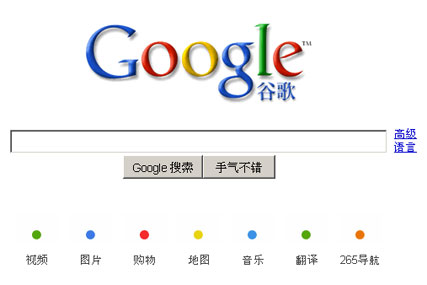
Three leading practitioners give their views on what, if anything, Google stands to win if it is forced to pull out of the People's Republic.
Brooke Clarke, managing director, Corporate Mandate
Google's threat to pull out of China if the country does not allow them to operate without censorship will be applauded by many as a brilliant step towards polishing its corporate reputation and a step away from its "big brother" all-knowing, all-seeing image by taking a stand for the values of free speech cherished by much of the world and experienced by so few in China. Many are thinking "what took you so long?".
From a reputational point of view, it threw into question the heart of the company's philosophical mission to "organise the world's information and make it universally accessible", although from a commercial perspective it would have been difficult to deny the appeal of operating in the world's most populous country.
The move would demonstrate the company has found the confidence to stand firm on its ethic of universal access, the core of its mission, and is ability to "walk the talk". While this will be a huge boost to Google's image and reputation, investors in the company and those with a stake in the continued commercial success of Google may question the wisdom of potentially backing out of the world's largest market.
Daljit Bhurji, managing director, Diffusion PR
Some cynics would say that it's easier to do the right thing when it's also economically expedient. Google's expansion into China was hugely unpopular with US legislators and as Google looks to embed itself deeper into Western economies, it will increasingly need those regulators on side to grow.
From a reputational stand-point China has been an open sore for Google and a focus for groups who are actively campaigning against the firm's plans to control and share more of our personal data and expand into new markets like mobile and TV.
This announcement has been a classic strategic PR move of trying to turn your greatest liability into an asset, with Google presenting itself as the good guy. Only time will tell if the public, governments and regulators see it the same way.
Ben Maynard, director, Corporate Mandate
The activities of the Chinese have to some degree given Google a "get out of jail free card". Its decision to collaborate with the Chinese government in blocking access to content that the latter deemed unsuitable for its population was a public relations disaster in the West.
It was one of the early indications that the "Do no evil" branding was perhaps less of an absolute and more of a flag of convenience. Now the actions of Chinese hackers and surveillance of dissidents via Google has given the company an excuse to roll back this rather tawdry deal.
However, while its reputation in the West will no doubt be somewhat reinvigorated by this action, we should not presume that it was entirely altruistic. Google has apparently not been doing so well in China anyway where the local search engine Baidu, although controlled by the government is nonetheless popular.
On a wider scale the decision has repercussions for many companies seeking to capitalise on the domestic Chinese market. To what extent are they willing to play ball with an authoritarian regime with a poor human rights record, and what are the concessions they are prepared to make to access this market?
If they do make concessions they need to balance the likely reputation damage they may suffer outside of China, plus the difficulty in competing with local champions, against the lure of over 1.3 billion new consumers.


.jpg)


.jpg)